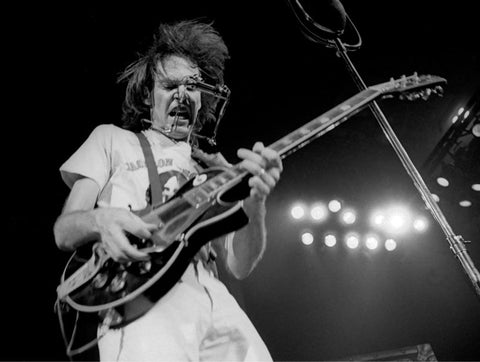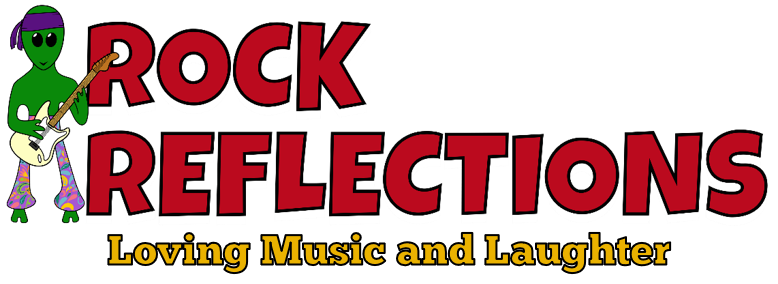‘Hey Hey, My My (Into the Black)’ is a song written by Canadian-American musician Neil Young. Combined with its acoustic counterpart ‘My My, Hey Hey (Out of the Blue)’, it bookends Young's 1979 album Rust Never Sleeps. The song was influenced by the punk rock zeitgeist of the late 1970s, in particular by Young's collaborations with the American art punk band Devo, and what he viewed as his own growing irrelevance.
The song ‘Hey Hey, My My...’, as well as the titular phrase of the album on which it was featured, "rust never sleeps," sprang from Young's collaborations with Devo and, in particular, the band's frontman, Mark Mothersbaugh. In 1977, Devo had been asked by Young to participate in the creation of his film, Human Highway, and a scene in the film shows Young playing the song in its entirety with Devo (with Mothersbaugh changing a lyric about "Johnny Rotten" to "Johnny Spud").

On May 28, 1978, Young collaborated with Devo on a version of ‘Hey Hey, My My (Into the Black)’ at the Different Fur studio in San Francisco and would later introduce the song to Crazy Horse.[2] During the Different Fur studio sessions, Mothersbaugh added the lyrics "rust never sleeps", a slogan he remembered from his graphic arts career that promoted the automobile rust proofing product Rust-Oleum. Young adopted the line and used it in the Crazy Horse version of the song, as well as for the title of his album. The lyrics, "It's better to burn out than to fade away." were widely quoted by his peers and by critics. The line "It's better to burn out than it is to rust" is often credited to Young's friend Jeff Blackburn of The Ducks.
Cash Box called it a "grinding three-chord rocker" that makes "a challenging musical and lyrical statement" with "thrashing drums and brash fuzz guitar." Record World called it "a perfect anthem with its slam-bang 'rock'n'roll will never die.'" Texas author and journalist Brad Tyer wrote in the Houston Press that ‘Hey Hey, My My’ was stylistically "proto-grunge grunt rock"
The lyrics refer to "The King" and Johnny Rotten as rockers whose legacies live on. The King is Elvis Presley, and Johnny Rotten was the lead singer of The Sex Pistols. n 1980, the song was used as the title theme of Dennis Hopper's movie Out of the Blue. The song is also referenced in Panic! At The Disco's ‘Nicotine’, Def Leppard's ‘Rock of Ages’, Hole's ‘Reasons to be Beautiful’, Bosse's ‘Schönste Zeit’, Meg Myers' ‘Some People’, Killswitch Engage's ‘The New Awakening’ and most recently Machine Gun Kelly's ‘27’. It is also spoken by The Kurgan (Clancy Brown) in the 1986 fantasy adventure film Highlander in the modern-day church scene. Some of the lyrics are also is used in Queen's ‘Gimme the Prize (Kurgan's Theme)’ from the album A Kind of Magic, which functioned as that film's soundtrack.
Label – Reprise
Songwriter – Neil Young
Producers – Neil Young, David Briggs, Tim Mulligan
SONG LYRICS
[Verse 1]Hey hey, my my
Rock and roll can never die
There's more to the picture than meets the eye
Hey hey, my my
[Verse 2]
Out of the blue and into the black
You pay for this, but they give you that
And once you're gone you can't come back
When you're out of the blue and into the black
[Guitar Solo]
[Verse 3]
The king is gone but he's not forgotten (Johnny Rotten, Johnny Rotten)
Is this the story of Johnny Rotten? (Johnny Rotten, Rotten Johnny)
It's better to burn out 'cause rust never sleeps
The king is gone but he's not forgotten
[Guitar Solo]
[Verse 4]
Hey hey, my my
Rock and roll can never die
There's more to the picture than meets the eye


